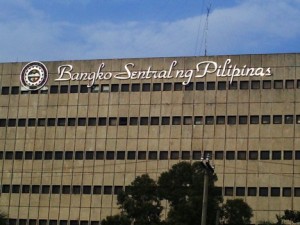BSP tightens watch on property loans
The Bangko Sentral ng Pilipinas has tightened its watch on the loan exposures of conglomerate-owned banks to sister companies in the property sector on concerns that this could threaten the stability of the banking industry.
BSP Deputy Governor Nestor Espenilla Jr. said the regulator was mindful of risks associated with a robustly growing economy, including a sudden rise in demand for properties and the corresponding growth in bank lending.
“We are monitoring this matter closely,” the central bank official told the Inquirer, saying the loan exposure of banks to sister companies owned by the same conglomerates was one of the things the BSP was looking at keenly the moment to ensure the country’s banking sector would remain stable.
Exposure comes both in terms of loans directly extended to a real-estate company and loans granted to borrowers who will use the money to buy properties built by the same company.
Aside from putting a bank’s stability at risk, another problem with a heavy loan exposure to property firms is the potential to cause asset price bubbles. The Asian crisis in the late 1990s was aggravated by a property bubble that led to huge losses for banks in the region.
But while the BSP recognized that the situation merited closer monitoring, Espenilla said concerns that the country’s banking sector was starting to become overly exposed to property developers were unfounded.
He said that based on the latest assessment by the BSP, the loan exposure of banks to the real-estate sector remained within ceilings set by the regulator.
“We are satisfied that such exposures are presently within allowable regulatory limits and are broadly adequately managed,” Espenilla said. “We see no reason for undue concern at this time.”
BSP regulations require banks to keep their outstanding real-estate loans within 20 percent of their total loan portfolios. This is under study for potential tightening because the 20-percent ceiling covers only loans extended to commercial property developers. Loans extended to individual borrowers wanting to buy real properties currently are not covered.
Another BSP regulation sets limits on loans banks may extend to “related interests” such as firm owned by the same conglomerates owning the banks.
The rule states that outstanding loans and guarantees granted by a bank to a single director, officer, stockholder, or related interests (Dosri) must be limited to an amount equivalent to its unencumbered deposits and book value of its paid-in capital contribution to the bank.
In addition, except with the prior approval of the BSP’s Monetary Board, combined outstanding loans and guarantees to all Dosri should not exceed 15 percent of the bank’s total loan portfolio or 100 percent of the bank’s networth, whichever is lower.


